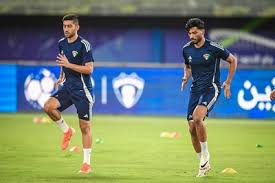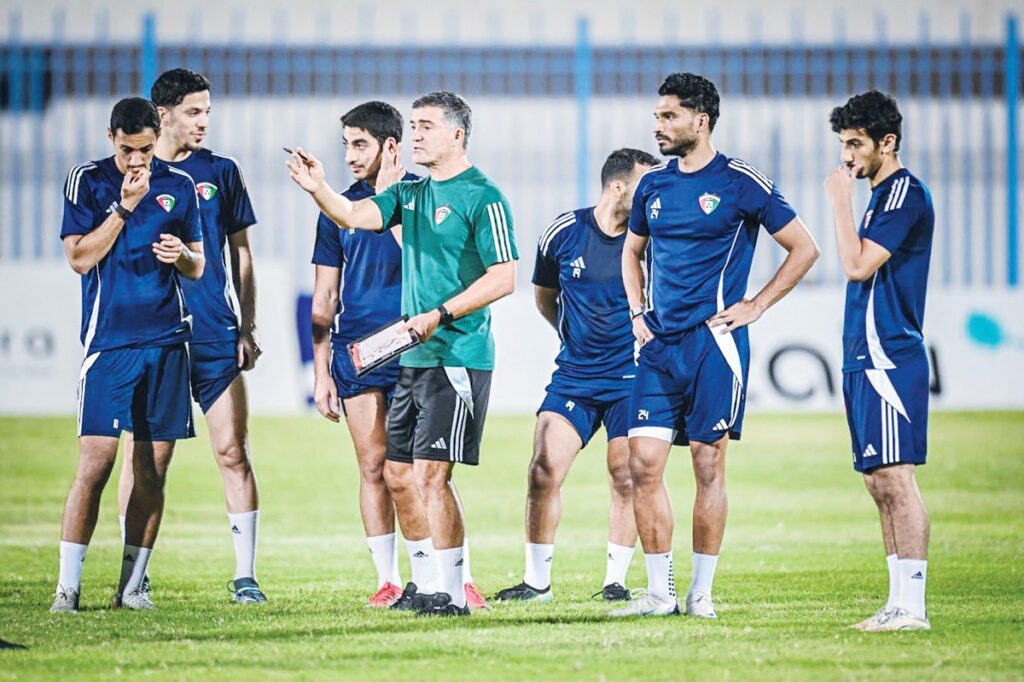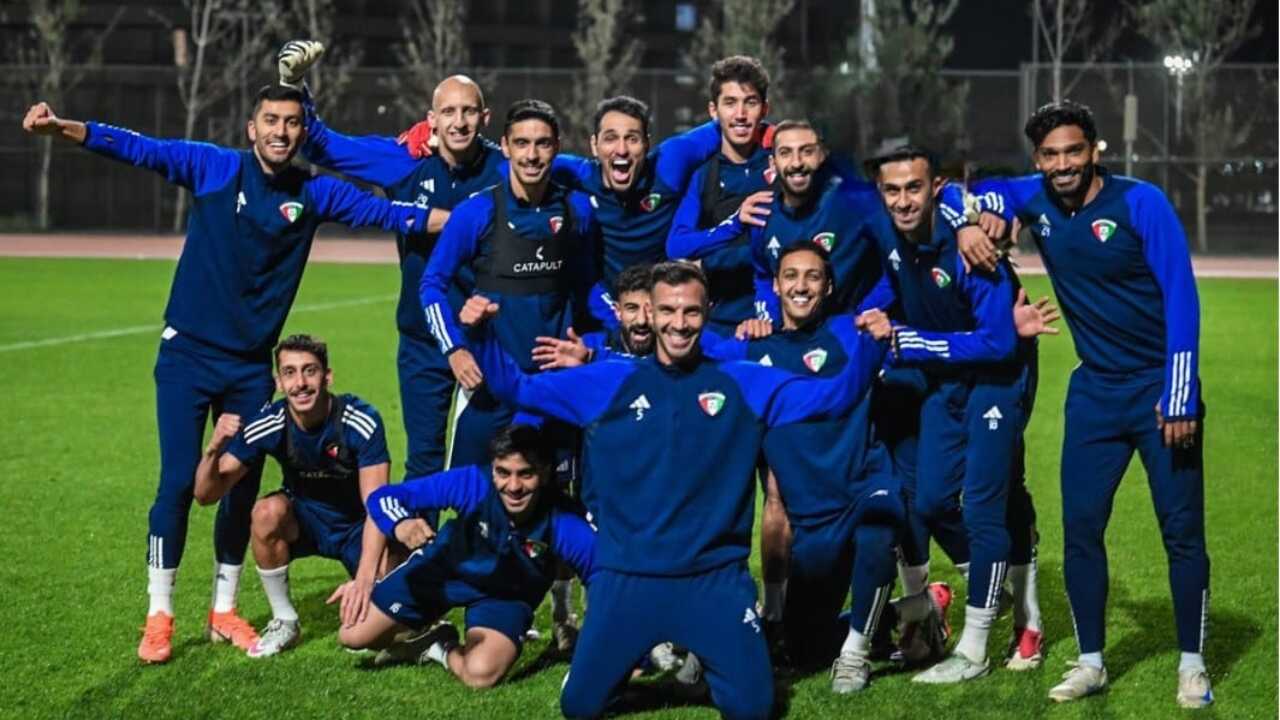A Pivotal Moment for Kuwait’s Football Future
On October 9, 2025, the Kuwaiti national football team will take on Uzbekistan in a friendly match at the iconic Olympic Stadium in Tashkent. This encounter holds significant importance as it represents a crucial step in Kuwait’s preparations for upcoming international competitions. Beyond just a friendly match, this game will provide the coaching staff with a platform to assess the squad’s readiness, evaluate tactical strategies, and build cohesion among the players.
For Kuwait, this match comes at a time of transition. The team is under new management, and the coaching staff is keen to experiment with formations, integrate young talent, and identify areas where players can improve before facing competitive fixtures in the near future. Every friendly match is an opportunity, and the coaching team is treating this one with the seriousness of a tournament game, ensuring that lessons are learned and improvements are made.
Uzbekistan’s Ambitious Preparations Under Cannavaro
Uzbekistan, led by the renowned Italian coach and former World Cup-winning defender Fabio Cannavaro, approaches this friendly with a clear purpose. Cannavaro has emphasized that every match is a chance to test strategies, sharpen teamwork, and prepare for bigger tournaments such as the 2026 FIFA World Cup.
Under Cannavaro’s leadership, Uzbekistan has been adopting a more attacking style of play, focusing on quick transitions, strong defensive organization, and exploiting the strengths of individual players. His philosophy combines discipline with creativity, allowing players to express themselves on the field while maintaining structure. Friendly matches like the one against Kuwait are therefore not just opportunities to win, but to observe how well these tactical adjustments translate into actual game situations.
Cannavaro’s experience at the international level has already begun to show positive effects on the squad. Players have reported feeling motivated and inspired, knowing that their coach has competed at the highest levels of football. This mindset is crucial, as psychological readiness often plays as important a role as physical preparation in international football.

Kuwait’s Strategic Training Camp in Tashkent
Ahead of the match, Kuwait’s national team held an intensive training camp in Tashkent. The sessions focused on both physical conditioning and tactical drills. Players have been acclimating to the local weather and pitch conditions, which is especially important given that Uzbekistan’s stadiums can present unique challenges due to altitude and surface differences.
The training camp also allowed the coaching staff to conduct in-depth evaluations of individual players. Each player’s strengths, weaknesses, and adaptability to different formations were carefully analyzed. The coaching team experimented with both offensive and defensive strategies to see which combinations could yield the best results during the friendly.
Moreover, this training camp has helped foster team spirit. Friendly matches can often highlight gaps in communication and coordination, and building a sense of unity among the players is essential for overcoming these issues. By living and training together in Tashkent, the Kuwaiti squad has been able to strengthen relationships on and off the pitch, creating a foundation of trust and understanding that can significantly impact performance during the match.
The Significance of International Friendlies
International friendlies hold a unique place in a national team’s calendar. Unlike competitive matches where points and rankings are at stake, friendlies offer coaches the freedom to experiment and evaluate new strategies. These games are invaluable for assessing younger or less experienced players, providing them with the opportunity to gain match exposure at an international level.
For Kuwait, this friendly is particularly important as the team looks to integrate several emerging talents. These players bring energy, enthusiasm, and new ideas to the squad, but they also need time to adjust to the pace and intensity of international football. By playing against Uzbekistan, a team with a solid record and disciplined tactics, these young players will be tested in real-game scenarios, allowing the coaching staff to make informed decisions about future lineups.
Friendlies also allow teams to build momentum and confidence. A well-executed friendly performance can instill belief in the squad, giving players the assurance that they can compete effectively on larger stages. For Kuwait, the match in Tashkent is an opportunity to demonstrate progress, showcase their preparation, and measure themselves against a competitive opponent in a neutral setting.
Player Spotlight: Rising Stars and Key Veterans
Several players are expected to stand out during this friendly. Kuwait has a mix of experienced veterans and promising newcomers. The veterans provide stability, leadership, and tactical awareness, guiding younger players and maintaining composure during intense moments. Meanwhile, the rising stars bring dynamism, speed, and creativity, injecting energy into the squad and offering fresh attacking options.
Uzbekistan, similarly, boasts talented players across all positions. Cannavaro has emphasized the importance of versatile players who can adapt to multiple roles, making the team harder to predict and more challenging to defend against. This balance of experience and youth will make the friendly not just a test of tactics, but also a showcase of individual skill and teamwork.
Tactical Approaches and Expected Formations
While neither team has publicly confirmed their exact lineup for the match, analysts predict that Kuwait may adopt a balanced 4-3-3 formation, focusing on maintaining possession, quick passing, and using width to stretch the opposition. The midfield will be key, as controlling the center of the pitch can dictate the flow of the game and create opportunities for the forwards.
Uzbekistan, under Cannavaro, may opt for a more aggressive 3-5-2 formation, emphasizing quick transitions and high pressing. By controlling the wings and applying pressure in midfield, Uzbekistan aims to force turnovers and create scoring chances. This clash of styles Kuwait’s structured build-up versus Uzbekistan’s high-intensity press promises an exciting and competitive friendly.

Building Momentum for Major Tournaments
Looking beyond the friendly, both teams have their eyes on upcoming tournaments. For Kuwait, strong performances in friendlies like this one are essential for building confidence and refining tactics before competitive qualifiers. Every game serves as a stepping stone toward larger goals, such as the Asian Cup and FIFA World Cup qualifiers.
Uzbekistan, too, is focused on long-term objectives. Cannavaro’s strategy involves not only winning matches but also developing a cohesive unit capable of performing consistently under pressure. Friendlies are therefore a laboratory for testing ideas, assessing players, and fostering a winning mentality that can carry the team into major tournaments with confidence.
Fan Engagement and National Pride
Matches like this friendly are more than just opportunities for tactical evaluation—they also engage fans and ignite national pride. Supporters of Kuwait will be watching eagerly to see how their team performs on an international stage, celebrating goals, teamwork, and moments of brilliance. Similarly, football enthusiasts in Uzbekistan will witness the progress of their team under Cannavaro, generating excitement and anticipation for future matches.
For players, fan support is motivating. Knowing that their performance is being followed closely at home and abroad can inspire them to give their best on the pitch. Friendlies offer a perfect platform for players to connect with supporters, demonstrate skill, and represent their nations with pride.
Conclusion: A Friendly With Lasting Impact
The friendly match between Kuwait and Uzbekistan in Tashkent is far more than a simple prelude to future competitions. It represents a critical phase in both teams’ preparation, a chance to evaluate talent, refine tactics, and build momentum. For Kuwait, the match is an opportunity to showcase progress under new coaching guidance, test rising stars, and strengthen team unity. For Uzbekistan, it is a chance to observe how Cannavaro’s strategies translate on the field and to continue building a competitive squad ready for international success.
As both teams take to the field, the match will offer fans, players, and analysts a glimpse into the evolving landscape of football in the region. It is a celebration of teamwork, skill, and ambition a friendly that carries lessons, memories, and the promise of future achievements.
Do follow Gulf Magazine on Instagram.
Also Read – Kuwait: A Global Humanitarian Superpower Inspiring Compassion Worldwide



